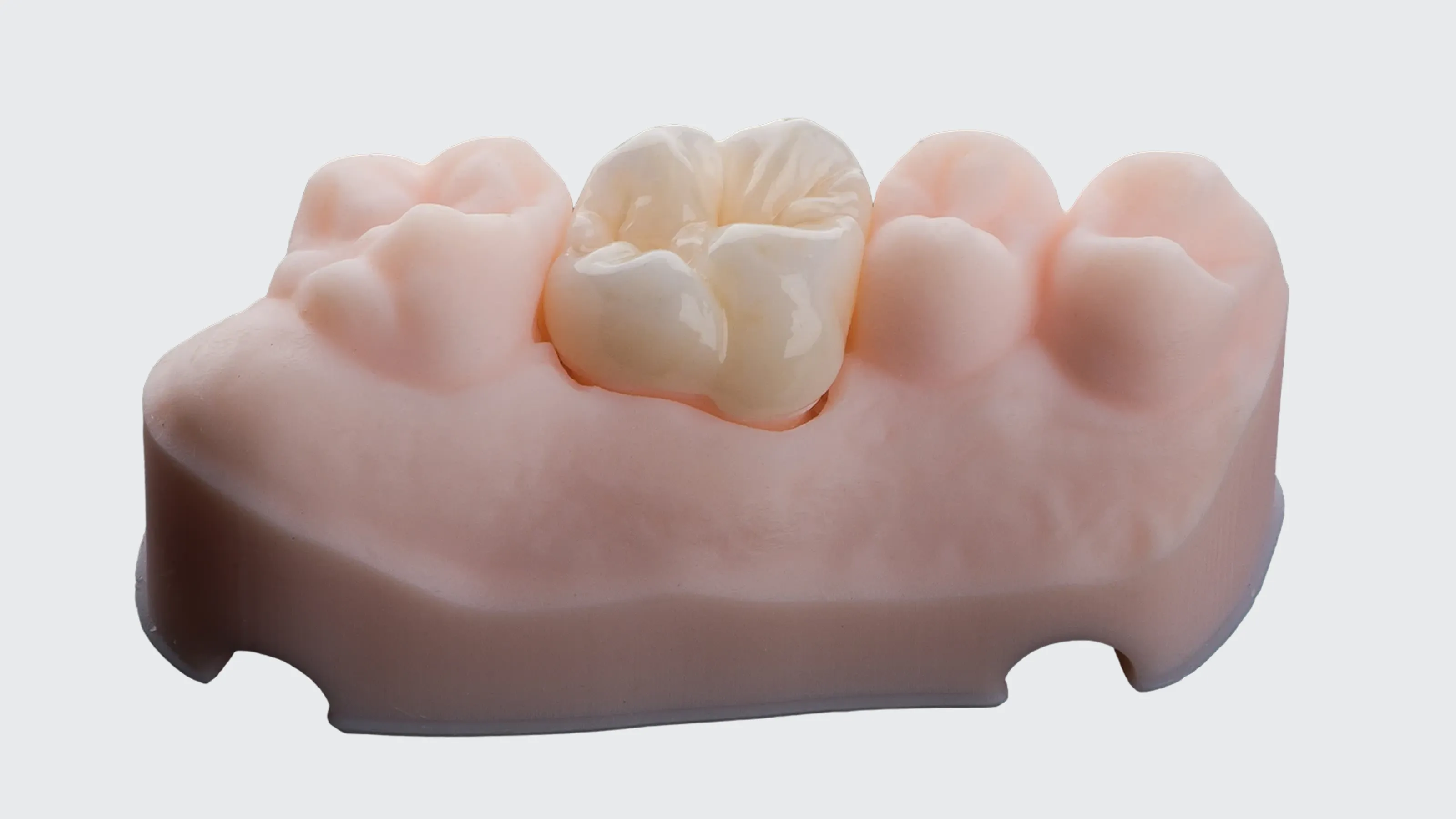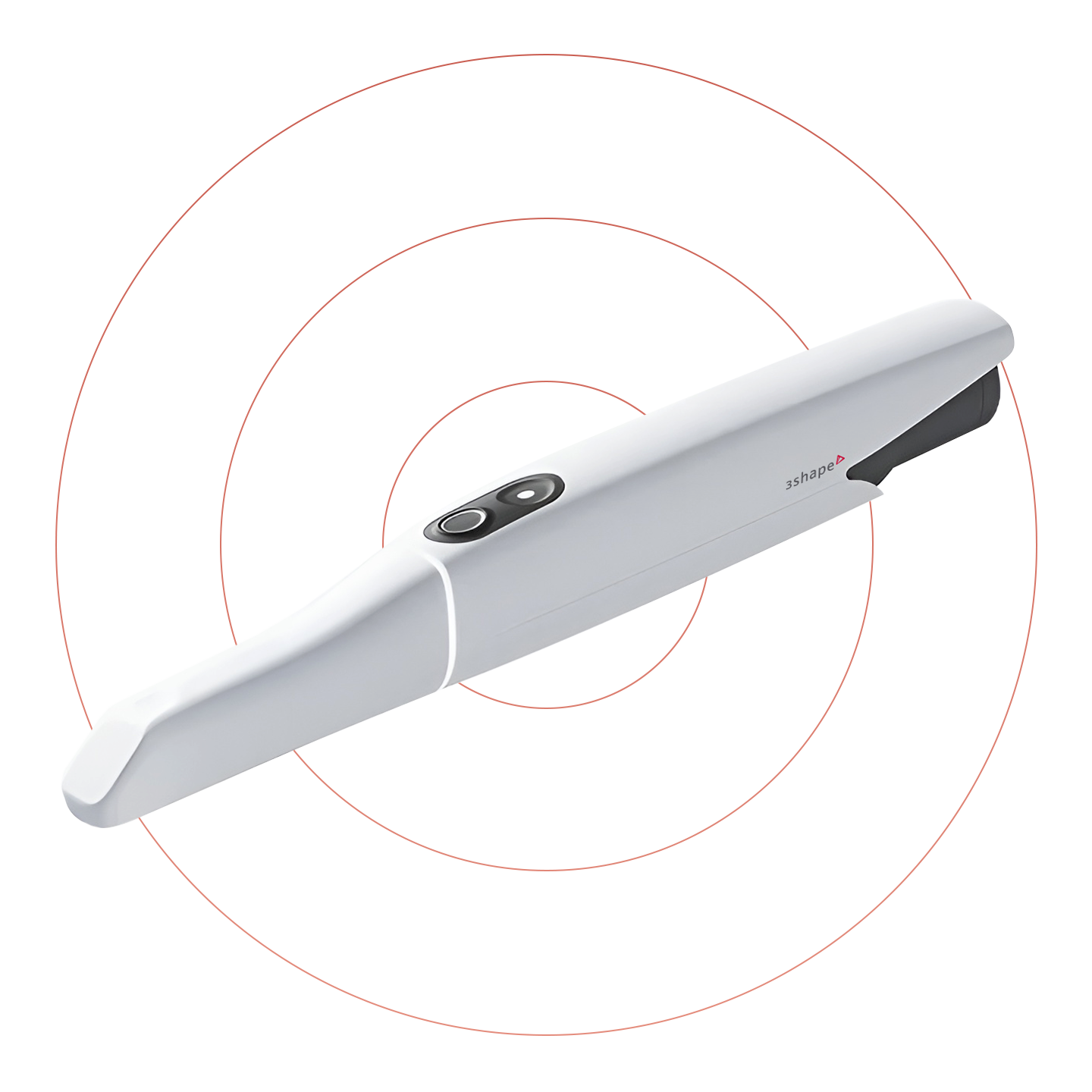Dental Crowns: A Clinical Overview for Dentists
Detal crowns remain a cornerstone of restorative dentistry — essential in both functional and esthetic rehabilitation. At Godent, we support clinics with precision-fabricated zirconia, all-ceramic, and porcelain-fused-to-metal (PFM) crowns, delivered through a fully digital workflow with fast turnaround and real-time collaboration.
Indications
Crown restorations are appropriate for:
* Patients with worn-down or heavily abraded dentition
* Fractured or chipped teeth
* Discolored or misshaped teeth requiring esthetic correction
* Structural reinforcement following endodontic therapy
* Large carious lesions or failed restorations
* Implant-supported restorations (crown over abutment)
Clinical Workflow
1. Tooth Preparation & Impression/Scan
The dentist reshapes the affected tooth to create sufficient clearance for the planned crown material. In some cases, core buildup may be necessary.
2. Digital or Conventional Impression
An intraoral scan or traditional impression is taken and sent to the lab. At Godent, we design and fabricate crowns using high-precision CAD/CAM systems.
3. Crown Fabrication (2–5 Days)
Depending on material and design, the crown is milled from monolithic zirconia, pressed porcelain, or built on a metal substructure with layered ceramics.
4. Try-In and Final Cementation
The crown is checked for marginal fit, proximal contact, and occlusion. Adjustments, if needed, are made chairside before final cementation.
Material Options
All-Ceramic Crowns
* 100% ceramic with high translucency
* Ideal for anterior cases
* Excellent esthetics, no metal core
Zirconia Crowns
* High-strength ceramic
* Suitable for posterior load-bearing zones
* Can be monolithic or porcelain-layered for added esthetics
PFM (Ceramic-Metal Crowns)
* Metal substructure with ceramic layering
* Proven durability
* Slightly less esthetic than full ceramic options
Clinical Considerations
* Temporization: Required if lab turnaround exceeds 48 hours
* Sensitivity: Mild thermal sensitivity is common after cementation
* Occlusal Adjustment: Needed in cases of bruxism or existing malocclusion
* Longevity: 5–15 years lifespan depending on occlusal stress and hygiene
* Survival rates:
* 94% at 8 years
* 75% at 18 years
Aftercare & Diet
* Avoid extremely hot liquids (e.g., coffee, tea) for the first 72 hours
* Recommend soft foods during the initial period post-cementation
* Avoid sticky or hard foods until the cement has fully set
* Reinforce hygiene instructions: interdental cleaning and proper brushing technique
* Patients with parafunctional habits may require occlusal guards
FAQ for Clinical Teams
Q: When should a crown be preferred over a filling?
A: When the remaining tooth structure is compromised or the restoration involves multiple cusps.
Q: Can zirconia be used for anterior esthetic cases?
A: Yes, especially when layered with porcelain. However, monolithic zirconia with high translucency (4Y or 5Y) can also deliver excellent esthetic results.
Q: Is PFM still relevant today?
A: Absolutely. While less esthetic than full ceramics, PFM remains a reliable choice in high-load posterior restorations and implant-supported crowns.
Potential Risks & Complications
* Transient sensitivity (usually resolves within days)
* Chipping or fracture (especially in layered ceramics under parafunction)
* Debonding due to improper isolation or cement choice
* Occlusal discrepancies requiring minor adjustments
Why Work with Godent?
At Godent, we combine digital design accuracy with esthetic craftsmanship to deliver crowns that require minimal adjustment chairside. Our platform offers:
* Real-time communication with lab technicians
* Design previews for feedback before fabrication
* Rapid turnaround (5 days)
* Material flexibility based on clinical case type


